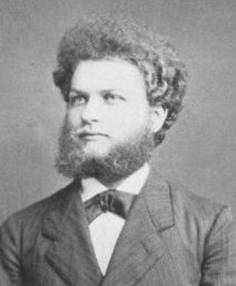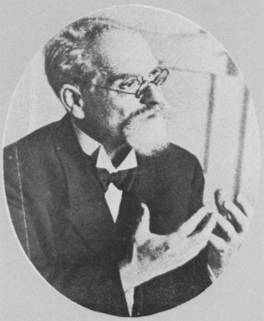Biographical Outline
Edmund Husserl was a highly prolific philosopher and mathematician and is considered one of the most influential thinkers of the twentieth century. He established phenomenology as a distinct methodology of thought. His legacy amounts to more than 40,000 pages of handwritten manuscripts, which have been accessible in full at the Husserl-Archives in Leuven, Freiburg and Cologne since 1950. Husserl’s written work has been analyzed and gradually brought into a published format over the course of these past 6 decades and published in the book series "Husserliana".
Edmund Husserl
(8. April 1859 - 27. April 1938)
Early life and Education

- 08.04.1859: Born in Proßnitz (Prostejov), Moravia
- 1868: Studied at the Realgymnasiums der Leopoldvorstadt in Vienna and received his Matura within one year
- 1876: Studied at the German Staatsgymnasium in Olmütz (Olomouc)
Studies, Doctorate und Habilitation
- 1876: Studied astronomy, mathematics, physics, and philosophy in Leipzig
- 1878: Studied mathematics and philosophy in Berlin
- 1881: Studied mathematics in Vienna
- 1882: Doctorate in Vienna. Dissertation in mathematics on “Beiträge zur Theorie der Variationsrechnung“ , followed by military service
- 1884: Studied philosophy under the supervision of Franz Brentano
- 1886: Moved to Halle where he wrote his Habilitation on “Über den Begriff der Zahl“ under the supervision of Carl Stumpf
- 1887: Obtained his Dr. Habil.; Married Malvine Steinschneider
Academic Work
- 1900/1901: "Logische Untersuchungen"
- 1901: Appointed Professor at the University of Göttingen
- 1913: "Ideen zu einer reinen Phänomenologie und phänomenologischen Philosophie"
- 1916: Professorship at the University of Freiburg following on from Heinrich Rickert
- 1922: Lectures in London: "Phänomenologische Methode und Phänomenologische Philosophie"
- 1928: Retirement
Post-retirement

- 1928: Lectures in Amsterdam: “Phänomenologische Psychologie“. Husserl becomes Foreign-Honorary Member of the American Academy of Arts and Sciences in Boston
- 1929: Lectures in Paris: “Méditations cartésiennes“
- 1931: Lectures in Frankfurt, Berlin and Halle: “Phänomenologie und Anthropologie“
- 1932: Husserl becomes a correspondant to the Académie des Sciences Morales et Politiques de l´Institut de France
- 1935: Lectures in Vienna: „Die Philosophie in der Krise der europäischen Menschheit“. Husserl becomes Fellow of The British Academy
During the Nazi regime
- From 1933: Increasing isolation and obstruction to his work
- 1936: Withdrawal of entitlement to teach; his attendance at the international philosophy congress in Paris prohibited
- 1937: Husserl has to move out of his flat in the Lorettostraße 40; In July he moves to Schöneckstraße 6
- 27.04.1938: Husserl dies
- 1938: Husserl‘s complete works are secured by P. Herman Leo Van Breda OFM. The founding of the Husserl Archive in Leuven

